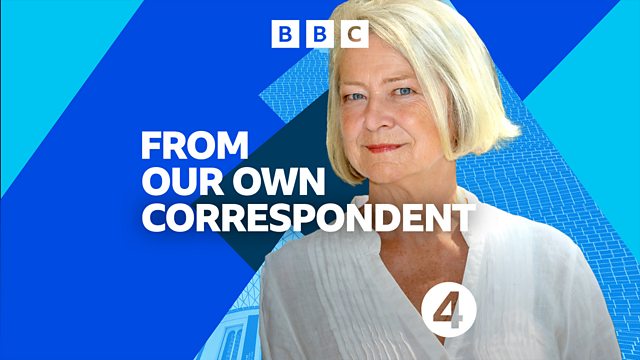05/12/2009
大象传媒 foreign correspondents with the stories behind the world's headlines, featuring reports from from Guinea, Bolivia, South Africa, Samoa and Tunisia. Introduced by Kate Adie.
Kate Adie introduces 大象传媒 foreign correspondents with the stories behind the headlines.
It's been a turbulent few days in the history of Guinea on Africa's west coast. The country's military leader was attacked as those around him argued over who would be blamed for a massacre of opposition supporters in September. Mark Doyle's just back from the capital Conakry, where he heard repeated demands for those responsible for the killings to be brought to justice.
The days ahead will reveal much about the world's determination - or lack of it - to confront the challenge of global warming. Will the nations gathered at the Copenhagen summit strike the kind of deal that will really make a difference? We'll hear the politicians talk, and watch the activists march. But far from the conference chamber, almost unnoticed, some of the world's poorest people will be struggling to cope with the hard realities of climate change. David Shukman explains what the rising temperatures mean for one neighbourhood in Bolivia.
'The earthquake itself was terrifying. The shaking and shaking went on forever,' said a survivor on the South Pacific island of Samoa. But what came next was even worse. Dozens of people were swept to their death in the tsunami triggered by the quake. All that was about two months ago. And now Samoa's people are gradually coming to terms with the aftermath of the disaster. John Pickford is just back from Samoa and says its society has been drawing on all its traditional resilience.
'Africa's time has come'. Those were the words of the South African delegation as the country claimed the right to stage the World Cup. It's still more than six months to the kick-off, but already you can feel the anticipation mounting. Andrew Harding says there are, of course, all the usual worries. Will there be enough hotel rooms, transport and so on? And in a country which has become associated with incidents of violent crime, will the World Cup visitors be safe?
Muslims around the world have just celebrated one of the major events in their calendar, Eid al-Adha. It's a time deeply imbued with notions of sacrifice and obedience to God. But the festival is also an occasion for dressing smartly, visiting relatives, handing out presents and eating! And as Luke Freeman explains, the tradition of the feast means that one particular animal suddenly finds itself in a rather awkward spot.
Last on
Chapters
-
Kate Adie introduces the programme
Duration: 00:32
Guinea traumatised by recent massacre
Duration: 04:56
The realities of climate change for one community in Bolivia
Duration: 05:42
Tackling crime in South Africa ahead of the 2010 World Cup
Duration: 05:15
Samoa begins slow recovery after September's tsunami
Duration: 05:40
Rising cost of feast of sacrifice for Tunisian families
Duration: 06:36
Broadcast
- Sat 5 Dec 2009 11:30大象传媒 Radio 4

